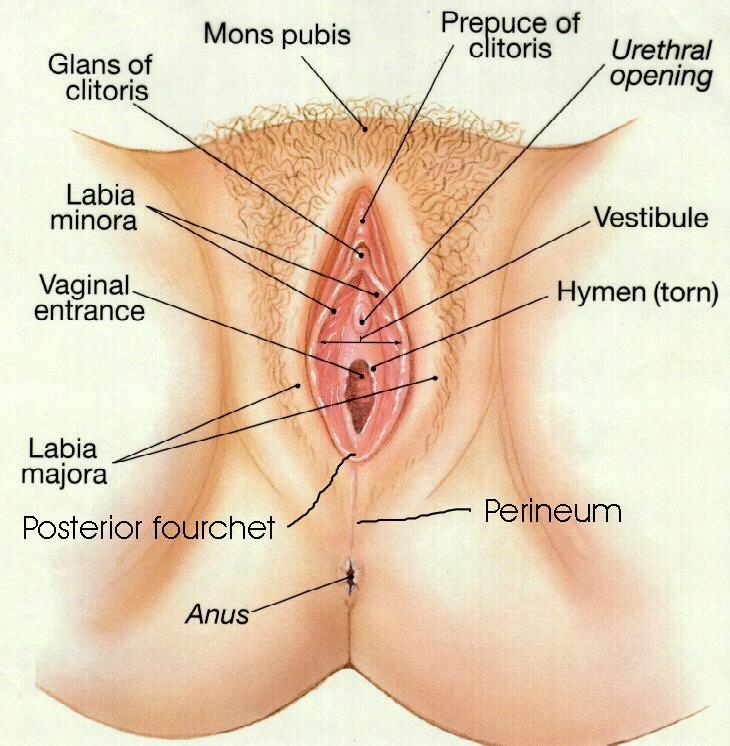TAKING CARE OF YOUR VAGINA
1.Wash with hot water only. It may seem counterintuitive, but washing your vagina with soap, whether it's bar soap or liquid, isn't the best way to keep clean. The vagina actually stays quite clean on its own without the help of outside cleansers.[1] Like other parts of the body, the vagina has a pH level that needs to be maintained within a certain range - 3.5 and 4.5, to be specific - in order to prevent the growth of unhealthy bacteria and facilitate the growth of good bacteria. Using harsh cleansers can upset the balance, leading to infection, irritation, and even bad smells.
People often refer to the entire area "down there" as the vagina, but remember that the vagina is actually the tube-like muscle located inside your body. The vulva, the skin outside the vagina, may be cleansed with no-frills bar soap, as long as you don't find that it irritates your skin.
If you do end up washing your vagina with soap, make sure to thoroughly rinse it with warm water so that no traces of soap are left behind. Soap left inside the vagina can cause irritation.
2. Don't use douches or feminine sprays. Douching with chemicals that are supposed to make your vagina smell like a field of flowers actually ends up having quite the opposite effect.[2] They wash out all the healthy bacteria that helps your vagina stay clean and infection-free. The chemicals left behind by douches can cause irritation and even burning, and the same goes for feminine sprays. If you keep your vagina healthy using other methods, there will be no need to try to make it smell different.
Scented creams marketed as a way to change the smell of your vagina can cause the same problems, so these should also be avoided. The same goes for scented pads and tampons and scented wipes.
If you feel like you absolutely have to use a scent on your vagina, go for something completely natural and chemical free. You can make your own body spray by mixing a few drops of an essential oil like rose, lavender or lemongrass with water in a spray bottle. Use the body spray after showering, and make sure you're completely dry before getting dressed.
3. Have good hygiene during your period. Many women experience an increased rate of vaginal infections when they're menstruating, since having blood in the vagina changes its pH and throws things out of balance. To stay healthy during your period, practice the following habits:
Change your tampon frequently. Tampons absorb menstrual blood, and if you leave them in too long, you're keeping the blood in your vagina where it can change your pH. Make sure you change your tampon every few hours to keep this from happening.
Don't use pads or panty liners for longer than necessary. Wearing pads and panty liners all month long or after your period is over can lead to skin irritation.
4. Wipe from front to back. It's important to wipe from front to back, rather than the reverse, to keep fecal matter from entering your vagina and causing an infection. Use plain, unscented toilet paper to wipe. Avoid using wet wipes or any other product that contains perfumes and chemicals.
5. Wear cotton underwear. Cotton underwear dries quickly and allows air to flow freely through the fabric. This prevents the development of damp conditions that promote the growth of yeast and unhealthy bacteria that might lead to an infection.
Underwear made from synthetic fabrics, silk, lace, or other materials doesn't breathe as well.
If you like wearing underwear made from fabrics other than cotton, make sure the section of the underwear that will be touching your vagina has a cotton liner.
If you tend to get a lot of vaginal infections, try picking underwear made from organic, undyed cotton that hasn't been treated with any chemicals.
6. Change out of wet clothes right away. Wearing a wet bathing suit or wet workout clothes for a few hours leaves you prone to getting a yeast infection. Make sure you change into clean, dry underwear as soon as possible after swimming or working out. You might even want to keep an extra pair on hand for unexpected situations when you might find yourself in need of a fresh pair.
If you decide to shave the area around your vagina, be very careful not to cut yourself with the razor. Use shaving cream (making sure not to let any get inside your vagina) and take your time shaving around the folds so you don't accidentally get hurt.
Waxing is another option that many women choose. If you go this route, make sure you do some research and choose a reputable waxing salon that uses clean products and wax. Waxing salons with unsanitary practices can cause the spread of bacterial infections.
7. Eat lots of fruit. Cranberries, pineapples, strawberries, and other fruits help to freshen the smell of the liquids secreted by the vagina. Eating fruits won't exactly make your vagina smell fruity, but it can help you develop a more pleasant scent if that's something you're concerned about. Fruit also has a high water content, and staying hydrated helps flush the body of toxins that can lead to bad smells.
8. Eat garlic. Garlic has properties that kill yeast, making it an effective tool for preventing and treating yeast infections. Eating cooked or raw garlic a few times a week is a great way to keep your vagina healthy. It has also been said to help get rid of bad vaginal odor.
Know more : http://everydaylife.globalpost.com/personal-hygiene-teenagers-3140.html


